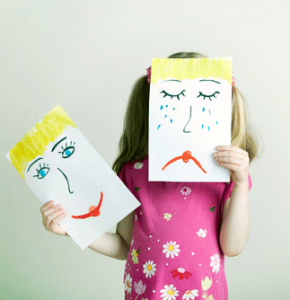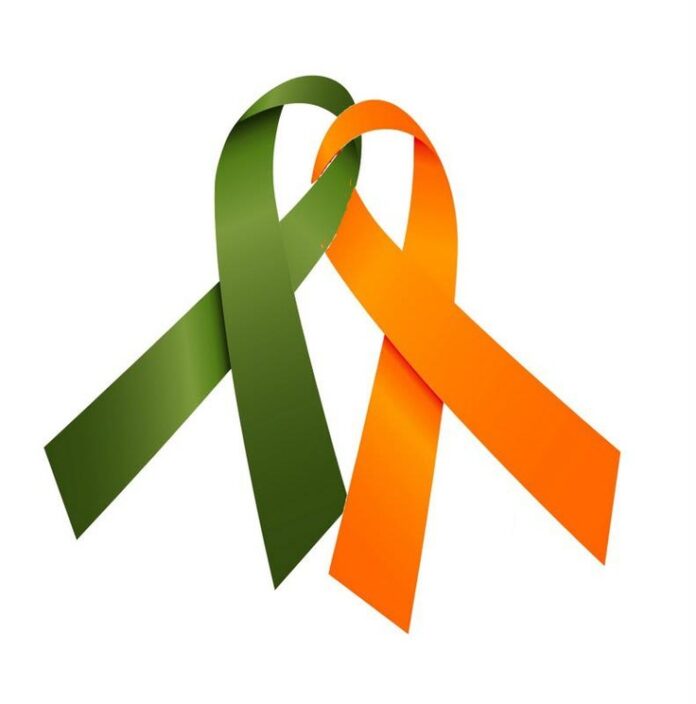If you or someone close to you has been diagnosed with cancers of the blood cells (like leukemia or lymphoma), this article dives into Early signs of leukemia and some deeper issues and questions that you may want to reflect upon.
How do you feel about family and society?
So, how do you get Leukemia? Cancers of the blood and its components are related to “life-blood” or basic survival i.e. feeling physically and emotionally safe and secure about life. Such feelings are so basic that they cannot be explained rationally. Rather, they are very deep-seated and often inherited very early, from one’s family and social circumstances.
You can witness the early signs of leukemia in how you feel about yourself and surroundings. For example, even wealthy people can feel insecure about money, or the most loving parents may have children who feel unworthy of love.
Blood is also associated with life-force or vitality. When the “life-blood” flows strongly, we feel vital and joyous, full of enthusiasm and inspiration. However, when a person is afraid of life, feels unsafe, does not give expression to their ideas, becomes withdrawn and experiences a lack of joy, they may be prone to blood-related illnesses.
The “root” chakra
 Blood receives its life-force from the root chakra. The health of this chakra is influenced by how we relate and connect with our family, religion, society – those things that we are born into.
Blood receives its life-force from the root chakra. The health of this chakra is influenced by how we relate and connect with our family, religion, society – those things that we are born into.
One of the early signs of leukemia that you should look for are strained relationships with the basic environment, people and systems of birth.
Childhood beliefs can hurt
 Early signs of leukemia start showing in the childhood itself. So, leukemia is one of the most common cancers affecting children. Though most leukemias are diagnosed in adulthood, the beliefs that patients may have inherited as children have a key role to play. Signs of leukemia in children start showing at an early age.
Early signs of leukemia start showing in the childhood itself. So, leukemia is one of the most common cancers affecting children. Though most leukemias are diagnosed in adulthood, the beliefs that patients may have inherited as children have a key role to play. Signs of leukemia in children start showing at an early age.
Consequently, children are especially susceptible to criticism and inheriting self-limiting beliefs from their family.
A parent angrily exclaiming, “You’re stupid”, or “I wish you were never born”, may cause a child to deeply believe it. Over time, this leads to severe self de-valuation.
Louise Hay offers specific insights into early signs of leukemia and the thought patterns that may lead to lymphomas. She correlates lymphomas with a tremendous fear of not being good enough, a frantic race to prove one’s self until the blood has no substance left to support itself. The joy of life is forgotten in the race to find acceptance.
Reflection
Here are a few things that you can reflect upon. The insights can help you recognise the early signs of leukemia.
- Do you feel safe and secure about your life? If not, what are the things, situations or people that make you feel insecure?
- What is your relationship with your family? Do you wish something was different about you?
- What belief patterns did you inherit from your family? Which ones do you want to let go of?
- What superstitions do you have? Which have more authority over you than your own reasoning ability?
- What unfinished business do you have with your family members? What prevents you from healing your family relationships?
- List all the blessings that you feel came from your family?
- What is your relationship with your religion? Are you satisfied or dissatisfied with it? In what way?
- How do you feel about the society that you live in? What do you wish was different?
- How strong is your need for others approval? What do you do to win approval?
References
- Louise Hay: “You Can Heal Your Life”
- Caroline Myss: “Anatomy Of The Spirit”
- Dahlke and Dethlefsen: “The healing power of illness”
- The New Holistic Medicine Website: http://www.new-holistic-medicine.com/causes-of-leukemia.html
More from this series
| Title | About the article |
The Cancer Rosetta |
Since cancer is complex and multi-factorial, it is well worth looking at it from many different perspectives. Also, to remember that no one healing system has all the answers. Hence, we offer you the Cancer Rosetta as a key to your healing journey. |
Breast Cancer |
Breast cancer now strikes younger and younger women. While modern medicine focuses on genetic factors, what about the possible mental/ emotional triggers? Consider aspects like over-caring for others and ignoring yourself, long-held anger and resentment, and even inability to love or forgive. Challenging insights from celebrated authors and holistic experts Louise Hay, and Caroline Myss. |
Cervical Cancer |
If you have cervical cancer, it can be worthwhile to look into what kind of societal norms you follow and how the beliefs that you may have inherited from your family affect you. |
Colo-Rectal Cancer |
Besides physical factors like dietary habits, can mental/ emotional aspects like suppressed emotions or the greed for money, power and control trigger Colon cancer? Intriguing insights from renowned authors: Louise Hay, Caroline Myss, Rudiger Dahlke and Thorwald Dethlefsen. |
Leukemia/Lymphoma |
Leukemia & Lymphoma are mysterious diseases, indeed. So, what is the role of mental/ emotional aspects like relationships with family/ society, and particularly long-held resentment in triggering cancers of the blood? Provocative insights from renowned authors and healers: Louise Hay, Caroline Myss, Rudiger Dahlke and Thorwald Dethlefsen. |
Pancreatic Cancer |
Pancreatic cancer is both rare and deadly. So what do issues like the inability to accept love or managing your ego have to do with triggering pancreatic cancer? Here’s what renowned authors and holistic practitioners like Louise Hay, Caroline Myss, Rudiger Dahlke and Thorwald Dethlefsen have to say. |
Ovarian Cancer |
Ovarian (and uterine/ cervical) cancer are increasingly common. Renowned authors like Louise Hay, Caroline Myss suggest that curbing your creativity, financial insecurity, discomfort with your sexuality, are mental/ emotional triggers to consider |
Stomach Cancer |
This article looks at stomach cancer through a psychological and energetic lens and provides insight into the kinds of stresses that may have led to the condition. It offers questions for introspection, that can contribute to recovery. |
Prostate Cancer |
So, what causes prostate cancer? What kind of mental and emotional patterns can trigger prostate cancer? Here are some insights and opportunities for self-reflection. |









Dear Santhan,
My 18 year old son Colin, was diagnosed with AML on October 20th, 2009. At this point he was unable to attend regular school, his health had become unpredictable. The experts say the AML ‘blast’ cannot answer for the last three years he struggled. On the one hand we were relieved there was a diagnosis, and on the other, it was a heavy duty one.
His spirit was unflagging through it all. Friends and family thronged to spend some time with him.
All the subtle insights that you have mentioned seemed to have played some part in his health deteriorating. But when two chromosomes broke, I am not sure if diet or self esteem would’ve had any place anymore in the outcome.
On reflection, he had difficulty to thrive or put on weight from a young age. His body wasn’t absorbing the nutrients well. Only after chemo did he gain weight and look fabulous.
His spirit, his humour, his positivity was the energy that connected him to people. And it still does. He is always chattering in my head and they are mostly deep or funny things he is saying.
We both believed that one doesn’t ‘fight cancer’, you flow with it, you ride the storm the best way you can. You don’t allow yourself to feel out of control and think you are going to survive or succumb to it. A victim stance doesn’t give you one happy moment. You make healthy decisions every moment you have; you decide you are going to call a friend, or sleep, or laugh.
When he died, (Nov 23rd, 2010) it was on his terms, he decided to let go and not work so hard. We all had a chance to say goodbye, fifty or sixty friends came to visit. Although he was heavily medicated, he could acknowledge them with a raised eyebrow or a small movement of his hand.
This seemed like a karmic journey. Although I am having difficulty believing in anything.
He was the child I wanted, and he knew it.
His intelligence was way beyond his age group, and there was a lot of strutting it and putting it in everyone’s face!
He was an amazing athlete: Golf, Baseball, Basketball, Ping Pong, Scrabble, Chess and Poker. Usually won everything he played. Gave himself a goal to become a millionaire by the time he was in his early thirties. Also he never compromised on his integrity.
I could go on forever, but I think I have said more than enough.
He is remembered with a smile and intense heartache,
Pushpa
Mom
Pushpa, thank you for you deep sharing. Feeling you loss I find myself with a heavy heart, and yet I cannot help but see Colin through your eyes and delight in the person that he was. I am particularly drawn by your belief that one doesn’t “fight” cancer and I am wondering how you came to believe that.
Pushpa, thank you for you deep sharing. Feeling you loss I find myself with a heavy heart, and yet I cannot help but see Colin through your eyes and delight in the person that he was. I am particularly drawn by your belief that one doesn’t “fight” cancer and I am wondering how you came to believe that.
My deepest sympathies
Your son sounds like he was a wonderful, strong young man. I wish I could’ve known him. And you are strong as well. May you pass that strength to others as you have described Colin doing in his life, and in his passing, making good choices toward a life of strength and happiness. I’m so glad you can hear Colin’s voice, his laughter and comments which he might’ve made (is still making). That’s something I feel from my family members who have passed, but I don’t talk about it–it sounds odd and I don’t want to come off as odd, but there’s those little giggles and jokes and nudges from passed loved ones, at strategic moments, which cannot be denied.
May your life be filled with the happiness of all those you love!